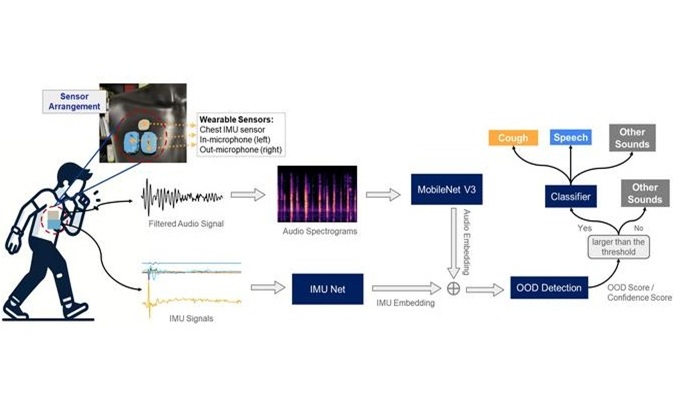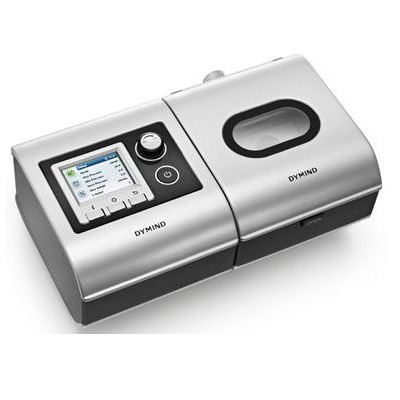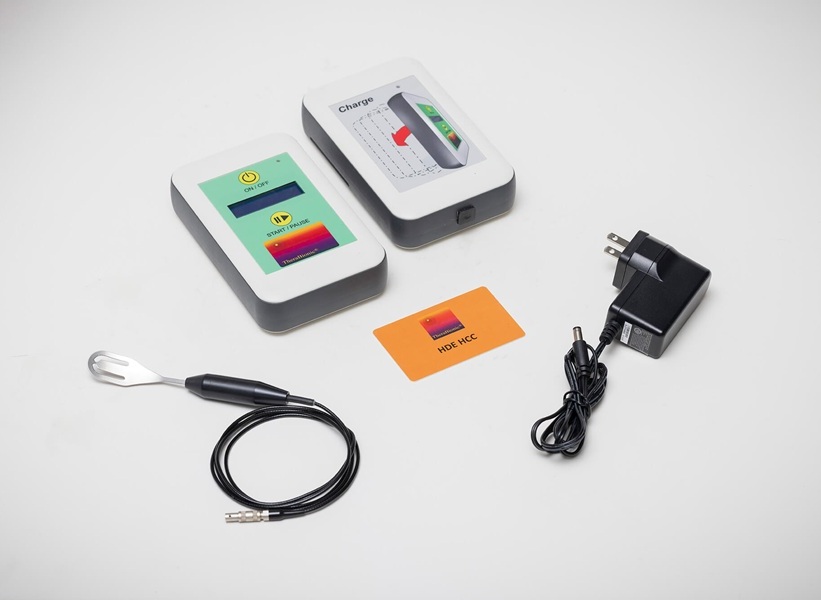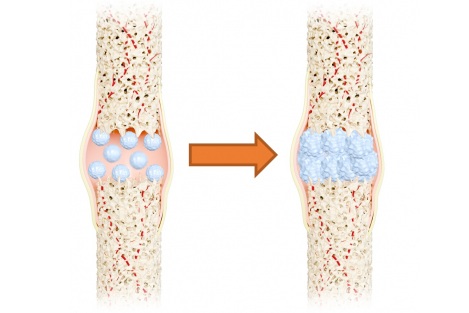Landmark Coronavirus Study to Trial Inhaled Imperial and Oxford COVID-19 Vaccines
|
By HospiMedica International staff writers Posted on 15 Sep 2020 |

Illustration
A small clinical study will compare COVID-19 vaccine candidates being developed by both Imperial College London (London, UK) and the University of Oxford (Oxford, UK) by delivering the vaccines directly to the respiratory tract of human volunteers, via inhalation through the mouth.
Currently, clinical trials are being carried out to assess the safety and efficacy of multiple COVID-19 vaccines delivered by intramuscular injection. However, scientists are keen to explore the potential for vaccines to be delivered to the respiratory tract where they could induce a localized, and potentially more specialized, immune response. It is unclear how this compares to the systemic immune response induced by injected vaccines. Imperial researchers are now set to begin trials to assess the safety and effectiveness of two of the UK’s coronavirus vaccines in development, when inhaled into the lungs.
The study aims to assess the safety and efficacy of administering the vaccines as airborne droplets inhaled by volunteers, rather than an injection into muscle. The vaccines will be delivered to a small group of healthy volunteers as an aerosol, similar to how inhaled asthma medications are delivered. Volunteers will receive aerosolized vaccines through a nebulizer, which will deliver the vaccine as airborne droplets through a mouthpiece. With direct vaccine administration to the respiratory tract, based on previous studies, lower doses may be required than by intramuscular injections to induce protective responses. The hope is that directly targeting the cells lining the airways - the typical point of infection for respiratory viruses - may induce a more effective immune response against the SARS-CoV-2 virus. This could potentially accelerate the development of effective vaccines against COVID-19 by exploring additional delivery methods and targets.
A total of 30 people are expected to be recruited to the trials. For each vaccine, researchers will assess three dose levels (low, medium and high dose) with three volunteers per group (18 in total), followed by an additional six in each group at the best dose (12 total). In addition to blood and nasal sample analyses, volunteers will undergo bronchoscopy to obtain samples from deeper within the lungs and monitor the effects in the lower respiratory tract. In addition to blood being analyzed for the presence of neutralizing antibodies (Immunoglobulin G, or IgG) and T cells, which fight the virus and protect against re-infection, the team will analyze nasal samples for the presence of specialized antibodies found in the nose and throat, called IgA, which would indicate a more specialized and localized immune response to the virus.
“We have evidence that delivering influenza vaccines via a nasal spray can protect people against flu as well as help to reduce the transmission of the disease. We are keen to explore if this may also be the case for SARS-CoV-2 and whether delivering COVID-19 vaccines to the respiratory tract is safe and produces an effective immune response,” said Dr. Chris Chiu, from the Department of Infectious Disease, who will lead the project.
“We have already shown that ChAdOx1 nCoV-19 (AZD1222) is safe and induces strong immune responses after intramuscular injection,” said Professor Sarah Gilbert, from the University of Oxford. “Delivering the vaccine to the respiratory tract instead may be a good approach to inducing immune responses in the best place to enable a rapid response after exposure to airborne virus. This is a small study which will provide some important information.”
Related Links:
Imperial College London
University of Oxford
Currently, clinical trials are being carried out to assess the safety and efficacy of multiple COVID-19 vaccines delivered by intramuscular injection. However, scientists are keen to explore the potential for vaccines to be delivered to the respiratory tract where they could induce a localized, and potentially more specialized, immune response. It is unclear how this compares to the systemic immune response induced by injected vaccines. Imperial researchers are now set to begin trials to assess the safety and effectiveness of two of the UK’s coronavirus vaccines in development, when inhaled into the lungs.
The study aims to assess the safety and efficacy of administering the vaccines as airborne droplets inhaled by volunteers, rather than an injection into muscle. The vaccines will be delivered to a small group of healthy volunteers as an aerosol, similar to how inhaled asthma medications are delivered. Volunteers will receive aerosolized vaccines through a nebulizer, which will deliver the vaccine as airborne droplets through a mouthpiece. With direct vaccine administration to the respiratory tract, based on previous studies, lower doses may be required than by intramuscular injections to induce protective responses. The hope is that directly targeting the cells lining the airways - the typical point of infection for respiratory viruses - may induce a more effective immune response against the SARS-CoV-2 virus. This could potentially accelerate the development of effective vaccines against COVID-19 by exploring additional delivery methods and targets.
A total of 30 people are expected to be recruited to the trials. For each vaccine, researchers will assess three dose levels (low, medium and high dose) with three volunteers per group (18 in total), followed by an additional six in each group at the best dose (12 total). In addition to blood and nasal sample analyses, volunteers will undergo bronchoscopy to obtain samples from deeper within the lungs and monitor the effects in the lower respiratory tract. In addition to blood being analyzed for the presence of neutralizing antibodies (Immunoglobulin G, or IgG) and T cells, which fight the virus and protect against re-infection, the team will analyze nasal samples for the presence of specialized antibodies found in the nose and throat, called IgA, which would indicate a more specialized and localized immune response to the virus.
“We have evidence that delivering influenza vaccines via a nasal spray can protect people against flu as well as help to reduce the transmission of the disease. We are keen to explore if this may also be the case for SARS-CoV-2 and whether delivering COVID-19 vaccines to the respiratory tract is safe and produces an effective immune response,” said Dr. Chris Chiu, from the Department of Infectious Disease, who will lead the project.
“We have already shown that ChAdOx1 nCoV-19 (AZD1222) is safe and induces strong immune responses after intramuscular injection,” said Professor Sarah Gilbert, from the University of Oxford. “Delivering the vaccine to the respiratory tract instead may be a good approach to inducing immune responses in the best place to enable a rapid response after exposure to airborne virus. This is a small study which will provide some important information.”
Related Links:
Imperial College London
University of Oxford
Latest COVID-19 News
- Low-Cost System Detects SARS-CoV-2 Virus in Hospital Air Using High-Tech Bubbles
- World's First Inhalable COVID-19 Vaccine Approved in China
- COVID-19 Vaccine Patch Fights SARS-CoV-2 Variants Better than Needles
- Blood Viscosity Testing Can Predict Risk of Death in Hospitalized COVID-19 Patients
- ‘Covid Computer’ Uses AI to Detect COVID-19 from Chest CT Scans
- MRI Lung-Imaging Technique Shows Cause of Long-COVID Symptoms
- Chest CT Scans of COVID-19 Patients Could Help Distinguish Between SARS-CoV-2 Variants
- Specialized MRI Detects Lung Abnormalities in Non-Hospitalized Long COVID Patients
- AI Algorithm Identifies Hospitalized Patients at Highest Risk of Dying From COVID-19
- Sweat Sensor Detects Key Biomarkers That Provide Early Warning of COVID-19 and Flu
- Study Assesses Impact of COVID-19 on Ventilation/Perfusion Scintigraphy
- CT Imaging Study Finds Vaccination Reduces Risk of COVID-19 Associated Pulmonary Embolism
- Third Day in Hospital a ‘Tipping Point’ in Severity of COVID-19 Pneumonia
- Longer Interval Between COVID-19 Vaccines Generates Up to Nine Times as Many Antibodies
- AI Model for Monitoring COVID-19 Predicts Mortality Within First 30 Days of Admission
- AI Predicts COVID Prognosis at Near-Expert Level Based Off CT Scans
Channels
Critical Care
view channel
Origami Robots to Deliver Medicine Less Invasively and More Effectively
Delivering medicine to ulcers or other internal sites often requires invasive procedures that can disrupt surrounding tissues and lengthen recovery times. Traditional magnetic actuators used in soft robotics... Read more
Improved Cough-Detection Technology Aids Health Monitoring
Coughing serves as an important biomarker for tracking a variety of conditions and can help monitor the progress of respiratory diseases or predict when someone’s asthma is being exacerbated.... Read moreSurgical Techniques
view channel
Novel Glue Prevents Complications After Breast Cancer Surgery
Seroma and prolonged lymphorrhea are among the most common complications following axillary lymphadenectomy in breast cancer patients. These postoperative issues can delay recovery and postpone the start... Read more
Breakthrough Brain Implant Enables Safer and More Precise Drug Delivery
Delivering medication directly to specific regions of the brain has long been a major challenge in treating neurological disorders. Current implants and infusion systems typically reach only one or two... Read morePatient Care
view channel
Revolutionary Automatic IV-Line Flushing Device to Enhance Infusion Care
More than 80% of in-hospital patients receive intravenous (IV) therapy. Every dose of IV medicine delivered in a small volume (<250 mL) infusion bag should be followed by subsequent flushing to ensure... Read more
VR Training Tool Combats Contamination of Portable Medical Equipment
Healthcare-associated infections (HAIs) impact one in every 31 patients, cause nearly 100,000 deaths each year, and cost USD 28.4 billion in direct medical expenses. Notably, up to 75% of these infections... Read more
Portable Biosensor Platform to Reduce Hospital-Acquired Infections
Approximately 4 million patients in the European Union acquire healthcare-associated infections (HAIs) or nosocomial infections each year, with around 37,000 deaths directly resulting from these infections,... Read moreFirst-Of-Its-Kind Portable Germicidal Light Technology Disinfects High-Touch Clinical Surfaces in Seconds
Reducing healthcare-acquired infections (HAIs) remains a pressing issue within global healthcare systems. In the United States alone, 1.7 million patients contract HAIs annually, leading to approximately... Read moreHealth IT
view channel
Printable Molecule-Selective Nanoparticles Enable Mass Production of Wearable Biosensors
The future of medicine is likely to focus on the personalization of healthcare—understanding exactly what an individual requires and delivering the appropriate combination of nutrients, metabolites, and... Read moreBusiness
view channel
Philips and Masimo Partner to Advance Patient Monitoring Measurement Technologies
Royal Philips (Amsterdam, Netherlands) and Masimo (Irvine, California, USA) have renewed their multi-year strategic collaboration, combining Philips’ expertise in patient monitoring with Masimo’s noninvasive... Read more
B. Braun Acquires Digital Microsurgery Company True Digital Surgery
The high-end microsurgery market in neurosurgery, spine, and ENT is undergoing a significant transformation. Traditional analog microscopes are giving way to digital exoscopes, which provide improved visualization,... Read more
CMEF 2025 to Promote Holistic and High-Quality Development of Medical and Health Industry
The 92nd China International Medical Equipment Fair (CMEF 2025) Autumn Exhibition is scheduled to be held from September 26 to 29 at the China Import and Export Fair Complex (Canton Fair Complex) in Guangzhou.... Read more

















